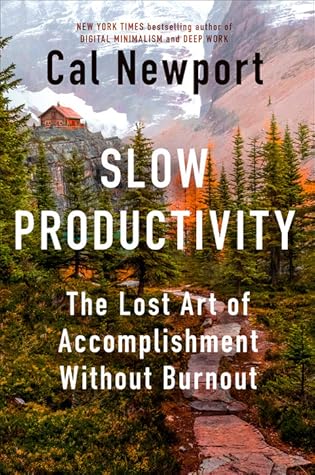More on this book
Community
Kindle Notes & Highlights
by
Cal Newport
Started reading
July 30, 2024
Furthermore, as we just established, the dynamics of cognitive labor are different from those of physical labor.
Sorry but, the fundamentals are still the same. When Marx explains about the exploitation he uses the factory as an example but the main ideas applies for the knowledge worker if he sells his work force in exchange for a salary (proletariat) to the bourgeois that owns the capital and the means of production.
If our workloads were entirely determined by all-powerful managers looking to maximize profits, we might expect, as paradoxical as this sounds at first, to have less on our plates.
The capitalist don't care about the overall quality of what has been produced. If it is possible to extract some profit from this work it is fine for him.
He can compensate the low quality paying less for the worker and keep his profit margin unchanged.
You can argue that "competition" would regulate thin in the long run but this is not what the reality shows. In real world we will see the cartelization and monopoly profiting in an underperformant operation.
How do knowledge workers decide when to say no to the constant bombardment of incoming requests? In the modern office context, they tend to rely on stress as a default heuristic for moderation. If you turn down a Zoom meeting invitation, there’s a social-capital cost, as you’re causing some mild harm to a colleague and potentially signaling yourself to be uncooperative or a loafer. But, if you feel sufficiently stressed about your workload, this cost might become acceptable: you feel confident that you’re close to becoming unsustainably busy, and this provides psychological cover to skip the
...more


